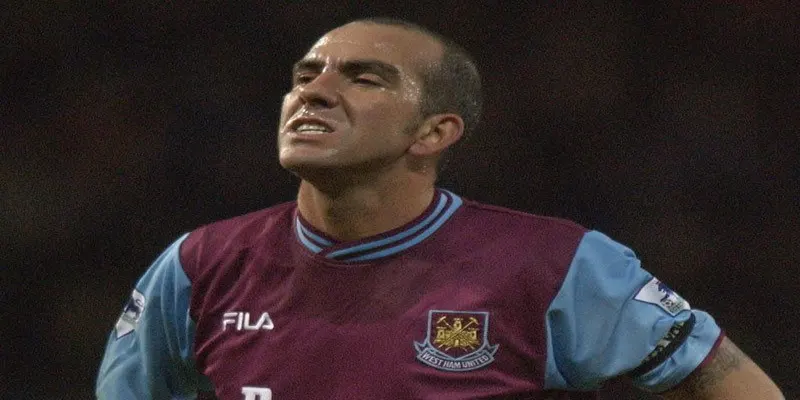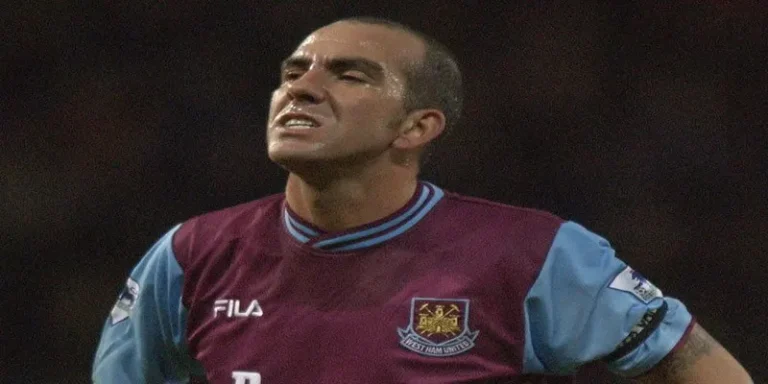
Paolo Di Canio: The Brilliant, Mercurial, and Controversial Legacy
Paolo Di Canio remains one of modern football’s most polarizing figures, a man whose career was defined by spectacular brilliance and intense controversy in equal measure. His story is far more complex than a simple list of goals and statistics; it is a nuanced study of passion, artistry, and political entanglement that left an indelible mark on every club he represented, most notably Lazio and West Ham United. For fans looking to relive the excitement of classic Italian football and analyze the matches featuring Paolo Di Canio, comprehensive sports data platforms like GO8 Game offer valuable historical statistics. This comprehensive analysis delves into the contrasting facets of his remarkable, yet often tempestuous, journey.
The Mercurial Rise: From Rome to Celtic Park
Paolo Di Canio began his professional journey with his hometown club, Lazio, laying the groundwork for a career steeped in Roman passion. His early years showcased dazzling talent, but also the volatile temperament that would shadow him. He possessed a rare technical skill combined with an explosive on-field personality, making him an immediate fan favourite—and a headache for managers.
His move to the Scottish Premiership with Celtic in 1996 marked a pivotal shift, where his flair found an appreciative audience. He quickly established himself as a showman and an exceptional footballer, winning the Scottish PFA Player of the Year award. His dynamic and unpredictable style of play was perfectly suited for Celtic Park’s demanding atmosphere. If you want to access the latest scores and comprehensive player statistics on the fly, you might want to consider the Đại lý GO8 experience for immediate insight.
The brilliant spell was short-lived, however, as his temperament led him toward the English Premier League. His arrival at Sheffield Wednesday brought instant notoriety. While his initial performances were vibrant, his infamous push on referee Paul Alcock, resulting in a prolonged ban, cemented the public perception of Paolo Di Canio as a volatile, albeit gifted, maverick. This single incident became symbolic of the constant battle between his footballing genius and his impulsive nature.
West Ham United: Cult Hero Status and Undying Passion
The most defining chapter of Paolo Di Canio‘s career arguably came during his time at West Ham United. Joining the Hammers in 1999, he was instantly embraced by the fans, who adored his uncompromising intensity and theatrical displays. He quickly demonstrated that his disciplinary issues were often a byproduct of an immense desire to win.
Di Canio’s highlight reel at Upton Park is legendary, highlighted by his spectacular, iconic volley against Wimbledon in 2000—a goal often hailed as one of the greatest in Premier League history. This moment epitomized his unique ability to deliver brilliance from impossible situations.
Beyond the stunning goals, the defining moment of his West Ham career was not an act of brilliance, but an extraordinary act of sportsmanship. In December 2000, instead of scoring into an open goal, he caught the ball and stopped play when he saw Everton goalkeeper Paul Gerrard was injured. This single action, which earned him a FIFA Fair Play Award, provided a profound counterpoint to his controversial reputation. It showed that underneath the fiery exterior lay a man governed by a strong, if complex, personal code. The complexity of Paolo Di Canio’s character was what captivated fans and media alike.
He scored 51 goals in 141 appearances for West Ham, leaving behind an emotional legacy that few overseas players can match. His commitment on the pitch was undeniable; every sprint, every tackle, and every celebration was delivered with maximum intensity, forging an undying connection with the Boleyn Ground faithful.
The Lazio Return and Political Storms
In 2004, the circle was completed when Paolo Di Canio returned to his beloved Lazio. His comeback was deeply symbolic, fulfilling a lifelong dream to wear the Biancocelesti jersey again before retirement. However, it was during this second spell that the controversies took on a darker, more serious tone.
Di Canio openly displayed far-right political views, most notoriously through the use of the Roman Salute (a fascist salute) towards the Curva Nord (North End) of the Stadio Olimpico. These gestures, performed repeatedly during the Rome Derby and other fixtures, provoked global condemnation, heavy fines from UEFA and the Italian Football Federation, and intense media scrutiny.
His political actions often overshadowed his dedication to the game. For many, his political leanings became an inseparable part of the Paolo Di Canio narrative, making his name inherently polarizing. The challenge for observers remains how to reconcile the prodigious athlete with the controversial political figure.
Management Career and Media Persona
Following his retirement from playing, Di Canio ventured into management, most notably taking the helm at Sunderland in the Premier League. His managerial tenure, though dramatic, was short-lived and turbulent, mirroring his playing days. He secured a dramatic relegation escape in 2013, but was dismissed early the following season amidst poor results and reports of dressing room friction.
Since then, Paolo Di Canio has primarily transitioned into a career as a football pundit on Italian television. His role in the media continues to generate discussion, leveraging his powerful, opinionated style to analyze matches. Even off the pitch, his presence is loud, insightful, and always highly engaging.
The Enduring Paradox of Paolo Di Canio’s Legacy
Few players in football history have managed to elicit such a wide range of emotions. On the pitch, Paolo Di Canio was a player of immense technical ability, capable of moments of staggering beauty, earning him comparisons to the great Italian masters. He was a natural leader whose fiery spirit inspired his teammates and drove opponents to distraction.
Off the pitch, however, his career remains defined by the highly public displays of controversial political beliefs that alienated many fans and pundits. His legacy is therefore complex: a paradox of breathtaking athletic genius marred by serious political overtones.
Ultimately, the name Paolo Di Canio is shorthand for passion, controversy, and brilliance. His story confirms that the true greats in sport are rarely simple figures; they are often the most complicated, leaving a legacy that is impossible to ignore. His career, spanning decades and disciplines, ensures that his name will continue to be discussed, debated, and analyzed for years to come.


